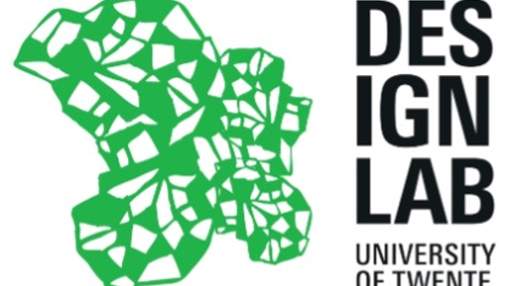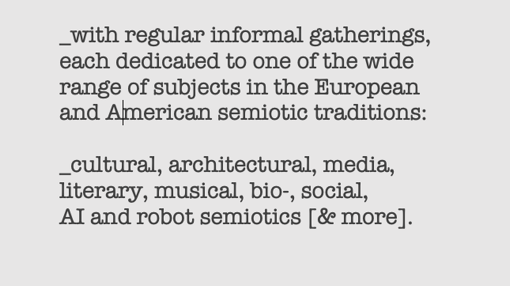Publicaties
2023
2022
Onderzoeksprofielen
Verbonden aan opleidingen
Vakken collegejaar 2024/2025
Vakken in het huidig collegejaar worden toegevoegd op het moment dat zij definitief zijn in het Osiris systeem. Daarom kan het zijn dat de lijst nog niet compleet is voor het gehele collegejaar.
- 201100073 - Economic Methods Sustainability Asses.
- 202001451 - Research Proposal
- 202001452 - Master Thesis Energy Management
- 202001453 - Master Thesis Environmental Management
- 202001454 - Master Thesis Water Management
- 202001475 - CS Economic matters for climate assessme
- 202200010 - Ethics & epistemology of AI & Robotics
- 202200104 - Control System Design for Robotics
- 202300112 - Rurban Commons
Vakken collegejaar 2023/2024
- 201100073 - Economic Methods Sustainability Asses.
- 201200039 - Smart rules & regimes
- 202000074 - Economic Assessment
- 202000077 - Project Area Development
- 202001418 - Innov in Sustain. Chain Manag.: Design
- 202001451 - Research Proposal
- 202001452 - Master Thesis Energy Management
- 202001453 - Master Thesis Environmental Management
- 202001454 - Master Thesis Water Management
- 202001456 - Stakeholder analysis in sustain. trans.
- 202001475 - CS Economic matters for climate assessme
- 202100154 - The Sustainability Game
- 202200010 - Ethics and epistemology of AI
- 202200104 - Control System Design for Robotics
- 202300112 - Rurban Commons
- 202300146 - Law and Governance of Robotics & AI
Lopende projecten

SERENE
Sustainable and Integrated Energy Systems in Local Communities
To accelerate the transition of Europe’s electricity system to a more decentralized structure, the SERENE project aims to demonstrate cost-effective and customer-centric solutions for effectively integrating different energy system carriers for the sustainable development of regional communities to meet their energy needs from local sources of renewable energy. The specific goal is thus to establish locally integrated “energy islands” in different villages of Skanderborg (Denmark), Olst (the Netherlands) and Przywidz (Poland). Such “energy islands” will contribute to the decarbonisation of local energy systems via the optimal integration of multi-energy carriers through smart control and the balancing of systems and grids at the local level. This approach will also increase the levels of renewable energy use, thereby enhancing the environmental, social and economic conditions of the citizens and establishing more business and trade. The experiences gained at the demonstration sites will be analysed and evaluated for replicability across Europe. Technical benchmark models and solutions will be established alongside business models and evaluated against the different challenges identified by the countries involved. The levels of user involvement and their interest to participate will be evaluated from the geographical, social, environmental and economic conditions.

SUSTENANCE
Sustainable Energy System for Achieving Novel Carbon Neutral Energy Communities
The overall purpose of the H2020 SUSTENANCE project is to set up sustainable energy systems for achieving novel carbon neutral energy communities. The project focuses on the development of smart technological concepts enabling a green transition of the energy systems with higher share of local renewable energy and more efficient integrated energy solutions for the electrical, heat, water, waste as well as transportation infrastructure. The set up solutions will at the same time have good socio-economic impact in the local communities and ensure eco-friendly solutions and good infrastructures, which provides support to sustaining the essentials of life. The demonstration activities are set up in four countries: Denmark, the Netherlands, Poland and India.

ELSE-HRIC
ELSE aspects of human-robot interaction in the classroom
In collaboration with dr. Dina Babushkina and dr. Michael Nagenborg. ------------------------------------------------------------------------------------------------ A key question in human-robot interaction concerns the implications that the cognitive pairing with the robot’s AI and mechanical components has for core human dimensions, such as emotions, identity, trust, anthropomorphism, and dependability. Moreover, as autonomous systems are deployed to perform real-world functions, the issue is not just about human-robot interaction from a consumer perspective; it is also about the interaction between robot and decision maker, as well as about the indirect interaction with a potentially large amount of people without their direct involvement. As a consequence, several ethical aspects merit attention, as well as how they can be translated to legal, regulatory, social terms. At the same time, the degree of cognitive pairing between humans and robots has led to hybrid epistemology, with open questions on what knowledge about the world do machines produce, how it relates to human knowledge, and what the resulting epistemological flow is. ------------------------------------------------------------------------------------------------------------------------------- In order to help the new generations of students and future professionals understand and address these crucial issues, the applicants have developed the new course “Ethics and Epistemology of AI” (OSIRIS code 202200010) as part of the Master’s in Philosophy of Science, Technology and Society. The course gives a systematic introduction to the ethics and epistemology of AI and robotics in the context of a larger debate in the humanities. Given the rapidly growing use of AI and robotics in various social spheres as well as its largely experimental nature, there is a pressing need for a responsible stance towards the design and implementation of this technology. --------------------------------------------------------------------------------------------------------------- We aim to apply DesignLab’s responsible futuring approach to our course from a citizen science perspective, in a way that humanities and social science topics are treated hands-on with technology. We will acquire and use in the classroom two robotic systems as learning material, for demonstration and prototyping activities. We use a humanoid robot as an accessible entry point to classic embodied artificial intelligence and a means for the teachers to introduce essential ethical and epistemological entry points. Distributed intelligence follows via use of swarm robots as an entry point to the radically alternative paradigm of swarm intelligence, with a set of largely unexplored implications. In parallel, we use swarms to demonstrate embodied machine learning in real-time.

Séméilogie
the semiotics reading group of Universiteit Twente
To recognise and support the fundamental role that semiotics* has for contemporary research and education, I have established séméiologie, the semiotics reading group of the University of Twente. We hold regular informal gatherings, each dedicated to one of the wide range of subjects in the European and American semiotic traditions: cultural, architectural, media, literary, musical, bio-, social, AI and robot semiotics [& more].